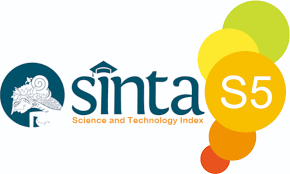PUBLICATION ETHICS
In the following we submit about agreements and ethical standards for all parties involved in all scientific publication processes, such as editors, reviewers, and writers.
1. EDITOR
Paradigma journal Editor is responsible making decisions about the manuscript that will be published in the Journal. The Editor's Board will guide and direct the Editor through the editorial board's policies and limit certain matters to applicable legal requirements related to defamation, copyright infringement, and plagiarism. Editors can also discuss with editors or reviewers from other journals to make this decision.
Fair Play. The editor will evaluate submited texts in accordance with intellectual content without regard to ethnicity, race, sex, sexual orientation, religion, ethnicity, nationality, or political philosophy of the author.
Confidentiality. Editors and editorial teams are not permitted to provide any information about the manuscript sent to anyone other than the author, reviewer, prospective reviewer, other editorial advisors, and the publisher, as appropriate.
Conflict of interest. Material that is not published in the submitted text cannot be used to research the editor himself without the author's direct or written consent.
2. REVIEWER
Contributions to Editorial Decisions. The review process can assist the auditor in making editorial decisions and through communication between the editor and the author will help the author in the process of improving the quality of writing in the text.
Promptness. Any selected referee who feels unqualified to review the research reported in a manuscript or knows that its prompt review will be impossible should notify the editor and excuse himself from the review process.
Confidentiality. Every text that has been submitted for review must be treated as a confidential document. Manuscripts may not be displayed or discussed with others except with permission or knowledge from the editor.
Standards of Objectivity. The process for reviewing the manuscript must be done objectively. Personal criticism from the author is not allowed. Reviewers must clearly show the results of the assessment along with supporting arguments that are easy to understand.
Acknowledgement of Sources. Reviewers must identify already published relevant works that have not been quoted by other authors. Each statement that observations, derivations, or previously reported arguments must be accompanied by relevant citations. The reviewer must also draw the attention of the editor if there is a substantial or overlapping similarity between the text being considered and other published papers that have personal knowledge.
Conflict of Interest. The unpublished material contained in the text may not be used for the reviewer's own research without the written permission of the author. Specific information and ideas obtained through the review process must be kept confidential and not used for personal purposes. Reviewers may not consider manuscripts that have a conflict of interest because of a competitive, collaborative or other relationship with one of the authors, or the company involved with the script.
3. Author
Reporting Standard. Authors of the original research report must present an accurate report of the work performed and objective discussion of its significance. The main data to be represented accurately in the script. The manuscript must contain enough details and references that allow other people to do more research. Statements that are fraudulent or intentionally inaccurate are unethical and unacceptable behavior.
Data Access and Retention. The author is asked to provide raw data related to the text for the editorial review process and must be prepared to provide public access to the data, if possible, and in any case must be prepared to maintain the data for a reasonable time after publication.
Originality and Plagiarism. The authors must be very sure that they have written a work that is entirely original from their own thoughts or research, and if the author has used the work and or words of someone else that has been quoted or quoted correctly according to the rules of quotation.
Multiple, Redundant or Concurrent Publication. A writer should not generally publish the same written text in more than one journal or main publication. Send the same text to more than one journal at the same time because it is an unethical and unacceptable publishing behavior.
Acknowledgment of Sources. Appropriate recognition of the work of others must always be given. The author must quote publications that have been influential in determining the nature of the work reported.
Authorship of the Paper. Authorship should be limited to those who have made a significant contribution to the conception, design, execution, or interpretation of the reported study. All those who have made significant contributions should be listed as co-authors. Where there are others who have participated in certain substantive aspects of the research project, they should be acknowledged or listed as contributors. The corresponding author should ensure that all appropriate co-authors and no inappropriate co-authors are included on the paper, and that all co-authors have seen and approved the final version of the paper and have agreed to its submission for publication.
Disclosure and Conflicts of Interest. All authors should disclose in their manuscript any financial or other substantive conflicts of interest that might be construed to influence the results or interpretation of their manuscript. All sources of financial support for the project should be disclosed.
Fundamental errors in published work. When an author discovers a significant error or inaccuracy in his/her own published work, it is the author’s obligation to promptly notify the journal editor or publisher and cooperate with the editor to retract or correct the paper.
Retraction.
Papers published in the JPJOK Journal will be considered to be recalled in publications if:
They have clear evidence that the findings are unreliable, either as a result of violations (eg data fabrication) or honest mistakes (eg calculation errors or experimental errors).
Previous findings have been published elsewhere without proper crossreferencing, permission or justification (ie excessive publication).
it is plagiarism.
it reports unethical research.
The mechanism of retraction follow the Retraction Guidelines of Committee on Publication Ethics (COPE) which can be accessed at here.







.jpg)


